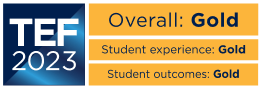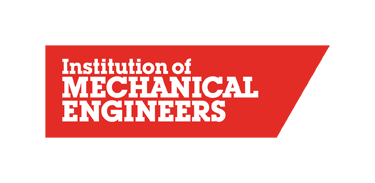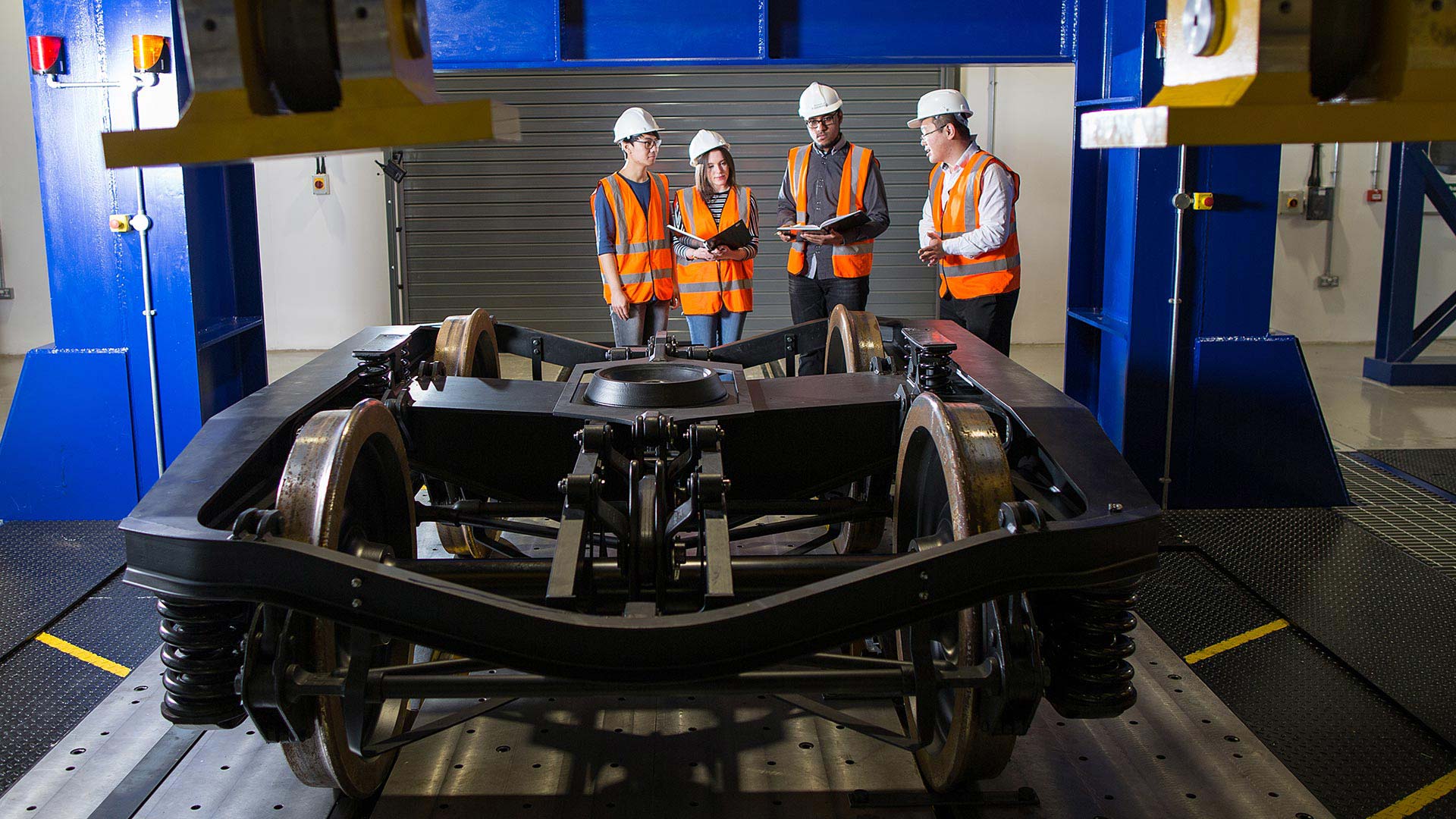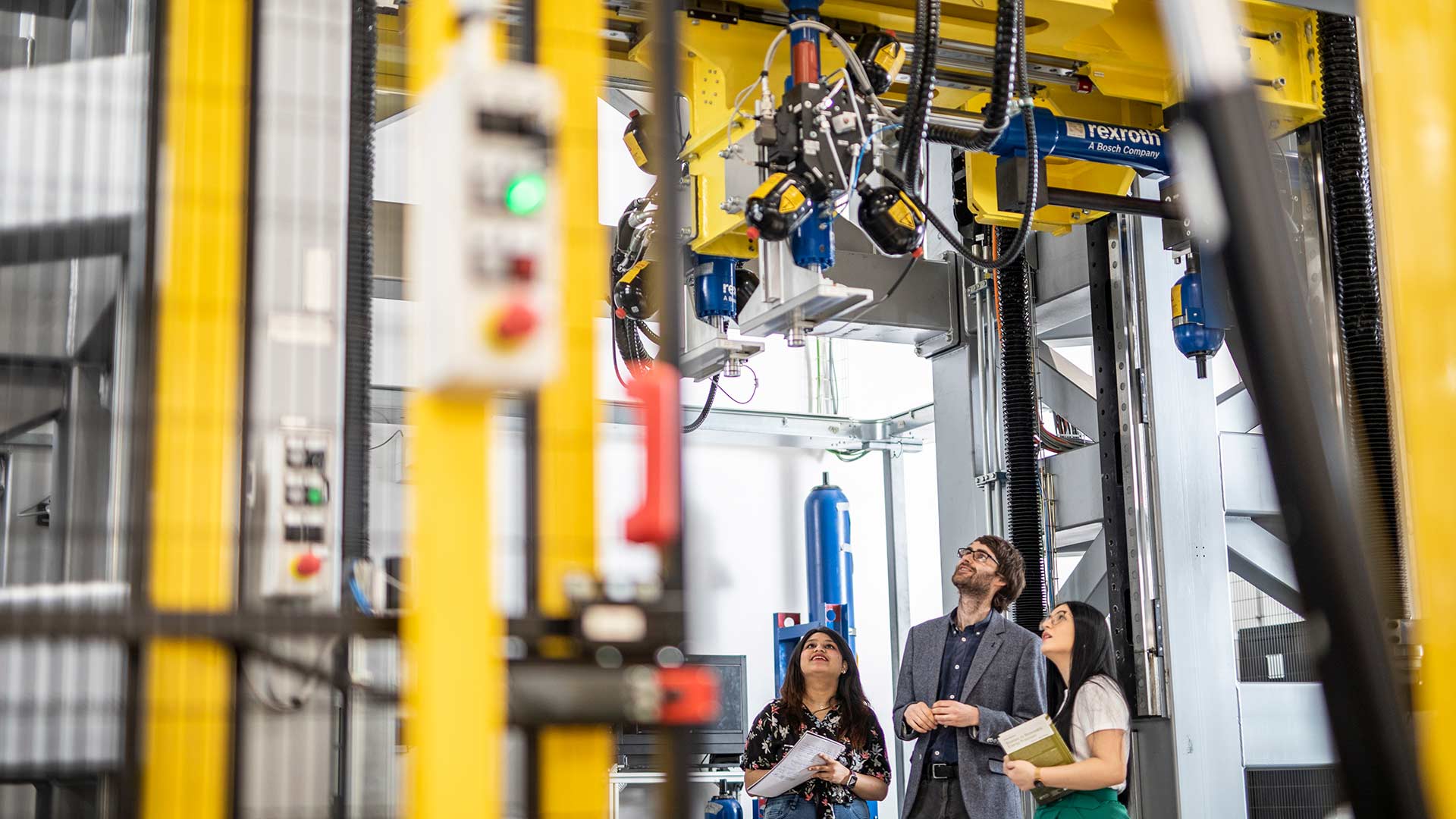Automotive and Motorsport Engineering MEng
Start Dates
21 September 2026
Duration
4 years full-time 5 years inc. placement year
UCAS Tariff
136-128
Overview
Why choose Huddersfield for this course?
- Directly relate your study of the fundamentals to your automotive specialism through project work on real world scenarios.
- Our Common First Year helps you explore Electronic, Electrical, Mechanical, and Civil Engineering before specialising in the field that suits you.
- In year four, you’ll complete an individual research/design project and have the option to link it to Team HARE, our Formula Student team.
Accreditation and Professional Links
Recognised connections to give you an extra edge when you graduate. Read More
Our Automotive and Motorsport graduates have realised their dreams of working in Formula 1, the domestic car market and a huge range of suppliers to those industries. Choosing to study the MEng will also give you the opportunity to develop your leadership skills and project management skills and work towards Chartered Engineer status. Being a chartered engineer will give you the credibility to become a leader in the field.
Our course also provides opportunities for you to apply the knowledge learnt in the classroom into design projects that lead to real products, so you’ll be ready to play a key role in the future of the industry. This experience will help you secure your dream job which could have substantial earning potential, enabling you to shape the life you want in the future. The top five job titles advertised in the UK for graduate roles associated with Automotive and Motorsport courses are Mechanical Design Engineers, Design Engineers, Electrical Design Engineers, Mechanical Engineers and Electrical Engineers*.
Our Automotive lab has industry standard kit which gives you exposure to a laboratory where you can experience dynamic analysis of vehicles, engine mapping and analysis which gives you the opportunity to build your practical skills directly related to your sector.
*Lightcast data extracted from Graduate Career Explorer – job postings from Dec 2023 to Nov 2024 showing jobs advertised associated with a selection of relevant graduate roles.
Why study Automotive and Motorsport Engineering MEng at Huddersfield?
From fuel cells to the challenges of vehicle autonomy, you’ll study the fundamental principles of mechanics, dynamics, heat transfer and fluid flow with manufacturing technologies. These are then related directly to your automotive specialism through the investigation of propulsion systems, power transfer and chassis dynamics. Project work on real world scenarios will then complete your preparation for a career in the automotive sector.
You’ll gain practical experience on this course by working on projects that present you with real-world problems and scenarios, all in preparation for a potentially role in the automotive industry.
Our Common First Year lets you explore key areas of Automotive, Electronic and Electrical, Mechanical, and Civil Engineering, giving you the chance to “taste” different specialisms before you decide. You will work in multi-disciplinary teams and build a solid foundation aligned with industry needs, whichever path you choose next.
During your first and second year, you will be part of our programme: EnABLE (Engineering in an Activity Based Learning Environment). This will see you work on projects to develop your technical knowledge and skills. EnABLE aims to boost your confidence, helping you when undertaking an optional placement in your third year, or when securing your first graduate role post-university.
An optional placement year is available to you after your second year in the course, allowing you to put your knowledge and skills to the test at sites in the UK and abroad.
In the fourth year you will work on a selected individual research/design project with the support of your academic supervisor. It is possible to align this with one of the Master's team projects, which involve the design, build and friendly competitive testing of either a road, airborne or rail vehicle, for example, our Formula Student team Team HARE, Team Hawk or HudRail. Many of our students choose to start becoming involved with Team Hare in their first or second year, which is good experience to help with applications for your placement year.
Graduates with an enhanced MEng level engineering training could become key influencers and industry leaders overseeing the transformation of our future. This course is accredited by the Institution of Mechanical Engineers (IMechE). This means it fully meets the academic requirements for Chartered Engineer status (CEng). This is important because it means that the degree meets the standards for you to progress on to be a Chartered Engineer, the professional seal of approval. The MEng qualification is regarded as the professional benchmark for engineers. An extension to the BEng award, it gives those who show potential the opportunity to study Master’s level modules and attain an enhanced undergraduate award which meets the academic requirements for Chartered Engineer (CEng) status.
Career opportunities after the course *
Mechanical Design Engineers
Design Engineers
Electrical Design Engineers
Electronics Engineers
Project Engineers
*Lightcast
Entry Requirements
AAB-ABB at A Level. A Levels must include A2 Mathematics (Use of Mathematics is not an acceptable A Level) and at least one other Science/Technology subject (or equivalent qualifications) from the list of A Levels in Additional Information.
136-128 UCAS points from a combination of Level 3 qualifications which must include the accepted qualifications as listed in Additional Information.
Distinction at T Level in Engineering and Manufacturing (Core) Full Qualification.
DDD-DDM in BTEC Level 3 Extended Diploma in Engineering. The BTEC Level 3 Extended Diploma in Science is not acceptable without an additional A Level Mathematics at least at Grade C.
136-128 UCAS tariff points from International Baccalaureate qualifications which must include Higher Level Mathematics and another Higher Level Science/Technology subject as listed in Additional Information.
Additional Information
In addition to A2 Mathematics, A Levels must include one of the following: Biology, Chemistry, Physics, Further and Additional Mathematics, Computer Science, Design and Technology: Product Design or Statistics.
BTEC Level 3 Extended Diplomas Engineering - please note that we do not accept BTEC Computing and Operations as a qualification for entry to this course.
If your first language is not English, you will need to meet the minimum requirements of an English Language qualification. The minimum for IELTS is 6.0 overall with no element lower than 5.5, or equivalent. Read more about the University’s entry requirements for students outside of the UK on our International Entry Requirements page.
Other suitable experience or qualifications will be considered. For further information please see the University's minimum entry requirements.
Course Details
This course offers an optional one-year work placement after Year 2.
You will also choose one optional module in this year. The current optional modules are:
For more information on when and how we update our modules please see the ‘Legal Information’ section below.
You will also choose one optional module in this year. The current optional modules are:
For more information on when and how we update our modules please see the ‘Legal Information’ section below.
Teaching and Assessment
Discover what to expect from your tutor contact time, assessment methods, and feedback process.
Global Professional Award
At Huddersfield, you’ll study the award-winning Global Professional Award (GPA) alongside your degree* — so you’re ready for the career you want, whatever subject you choose.
Placements
You’ll have the opportunity to complete an optional placement year (minimum 36 weeks, up to 48 weeks) in Year 3, either in the UK or abroad. This is your chance to gain hands-on experience, develop industry-specific skills, and enhance your career prospects. You’ll apply what you’ve learned in a real-world setting while exploring potential career paths.
Your placement will be monitored, and you’ll be assessed on your achievements, helping you refine your professional skills and prepare for your final year. Our Placement Unit and academic staff have strong industry connections and will support you throughout the process, from finding a placement to making the most of your experience. Students have previously secured placements with companies such as Cummins, Mercedes HPP, Nissan and Ricardo UK.
My placement as a project engineer has been very useful, working on projects designing and testing exhaust systems for new small Ford models (including Fiesta ST) at Faurecia. I gained several contacts who have offered me advice as well as jobs.
- Stuart Hague
Automotive and Motorsport Engineering MEng, Project Engineer, Faurecia
Your Career
Previous graduates from this course have gone on to work in a variety of roles such as senior supplier quality engineer, vehicle Engineering Manager, Design engineer, Lead Engineer and Chassis Engineer in organisations including McLaren Automotive Ltd, Aston Martin Lagonda Ltd, Rolls-Royce, Cummins Inc, Jaguar TCS Racing and Bentley Motors Ltd.**
Additionally, you may gain skills that are transferable to other industries and may be able to pursue a career that requires a good honours degree. You could also go on to further study and the University has many options available for postgraduate study which may interest you.
**Source: LinkedIn
100%
Percentage of graduates from this subject area who are in work and/or further study within fifteen months of graduation.
* (HESA Graduate Outcomes 21/22, UK Domiciled).
This course has been fantastic in preparing me for the professional world. The technical knowledge I've gained, particularly in dynamic systems and engine systems, is invaluable. My favourite element of the course was the hands-on projects. There's something incredibly satisfying about seeing your ideas come to life. These experiences made the theories we learned in class feel real and applicable.
- Muhammed Shahmeer
Automotive and Motorsport Engineering BEng(Hons)
Fees and Finance
This information is for Home students applying to study at the University of Huddersfield in the academic year 2026/27.
Please note that tuition fees for subsequent years may rise in line with inflation (RPI-X) and/or Government policy.
From January 2027 the UK government is launching a new student funding system for people starting university education. Read more about the Lifelong Learning Entitlement (LLE).
For detailed information please visit https://www.hud.ac.uk/study/fees/
This information is for international students applying to study at the University of Huddersfield in the academic year 2026/27.
Please note that tuition fees for subsequent years may rise in line with inflation (RPI-X) and/or Government policy.
For detailed information please visit https://www.hud.ac.uk/international/fees-and-funding/
Home
The tuition fee for a placement year is £1000. If you go on work experience or work placement, you will need to fund your own travel and/or accommodation costs to and from the placement. Please be aware that if your placement is outside of the UK, you will still be responsible for your travel and living expenses and may need to consider issues like health care and insurance costs.
International
The tuition fee for a placement year is £3,300. If you go on work experience or work placement, you will need to fund your own travel and/or accommodation costs to and from the placement. Please be aware that if your placement is outside of the UK, you will still be responsible for your travel and living expenses and may need to consider issues like health care and insurance costs.
Optional short field trips e.g. one day, are sometimes also arranged. Previous field trips have included Advanced Engineering Exhibition and Silverstone Museum. The costs of these field trips are heavily subsidised by the school but can sometimes incur a nominal cost and/or deposit of between £5 and £40 depending on the trip.
Depending on the student's choice of project, may incur costs on project materials, but many materials available from the department. (final year and masters only)
Scholarships and Bursaries
Discover what additional help you may be eligible for to support your University studies.
Tuition Fee Loans
Find out more about tuition fee loans available to eligible undergraduate students.
What’s included in your fee?
We want you to understand exactly what your fees will cover and what additional costs you may need to budget for when you decide to become a student with us.
If you have any questions about Fees and Finance, please email the Student Finance Team.
Gallery
Explore More
Why Hud
Explore the unique opportunities and resources that make our institution a top choice for students seeking a well-rounded and future-focused education.
More Info
Careers support
We know you’re coming to university to study on your chosen subject, meet new people and broaden your horizons. However, we also help you to focus on life after you have graduated to ensure that your hard work pays off and you achieve your ambition.
Find out more about careers supportStudent support
At the University of Huddersfield, you’ll find support networks and services to help you get ahead in your studies and social life. Whether you study at undergraduate or postgraduate level, you’ll soon discover that you’re never far away from our dedicated staff and resources to help you to navigate through your personal student journey.
See our support servicesTeaching Excellence
Great teaching is engaging and inspiring — it helps you reach your full potential and prepares you for the future. We don’t just teach well — we excel — and we have the awards and recognition to prove it.
Find out moreInspiring Academics
Our researchers carry out world-leading work that makes a real difference to people’s lives. Staff within the Department of Engineering may teach you on this course.
Find out more about our staffResearch Excellence
You’ll be taught by staff who want to support your learning and share the latest knowledge and research.
Find out moreAccommodation
Looking for student accommodation? Huddersfield has you covered. HudLets has a variety of accommodation types to choose from, no matter what your preference. HudLets is the University’s approved accommodation service, run by Huddersfield Students’ Union.
Take a look at your optionsFurther Study
If you want to continue your learning beyond your undergraduate degree, there is a range of financial support available for postgraduate study, including discounts for Huddersfield graduates.
Discover postgraduate coursesLegal information
When you enrol as a student of the University, your study and time with us will be governed by our terms and conditions, Handbook of Regulations and associated policies. It is important that you familiarise yourself with these as you will be asked to agree to them when you join us as a student. You will find a guide to the key terms here, along with the Student Protection Plan.
Although we always try and ensure we deliver our courses as described, sometimes we may have to make changes for the following reasons:
Changes to a course you have applied for but are not yet enrolled on
If we propose to make a major change to a course that you are holding an offer for, then we will tell you as soon as possible so that you can decide whether to withdraw your application prior to enrolment. We may occasionally have to withdraw a course you have applied for or combine your programme with another programme if we consider this reasonably necessary to ensure a good student experience, for example if there are not enough applicants. Where this is the case we will notify you as soon as reasonably possible and if you are unhappy with the change we will discuss with you other suitable courses we can transfer your application to. If you do not wish to transfer to another course with us, you may cancel your application and we will refund you any deposits or fees you have paid to us.
Changes to your course after you enrol as a student
Changes to option modules
Where your course allows you to choose modules from a range of options, we will review these each year and change them to reflect the expertise of our staff, current trends in research and as a result of student feedback or demand for certain modules. We will always ensure that you have an equivalent range of options to that advertised for the course. We will let you know in good time the options available for you to choose for the following year.
Major changes
We will only make major changes to non-optional modules on a course if it is necessary for us to do so and provided such changes are reasonable. A major change is a change that substantially changes the outcomes, or a significant part of your course, such as the nature of the award or a substantial change to module content, teaching days (part time provision), type of delivery or assessment of the core curriculum. For example, it may be necessary to make a major change to reflect changes in the law or the requirements of the University’s regulators or a commissioning or accrediting body. We may also make changes to improve the course in response to student, examiners’ or other course evaluators’ feedback or to ensure you are being taught current best practice. Major changes may also be necessary because of circumstances outside our reasonable control, such as a key member of staff being unable to teach due to illness, where they have a particular specialism that can’t be adequately covered by other members of staff; or due to pandemics, other disasters (such as fire, flood or war) or changes made by the government.
Major changes would usually be made with effect from the next academic year, but may happen sooner in an emergency. We will notify you as soon as possible should we need to make a major change and will consult with affected groups of students and any changes would only be made in accordance with our regulations. If you reasonably believe that the proposed change will cause you detriment or hardship we will, if appropriate, work with you to try to reduce the adverse effect on you or find an appropriate solution. Where an appropriate solution cannot be found and you let us know before the change takes effect you can cancel your registration and withdraw from the University without liability to the University for any additional tuition fees. We will provide reasonable support to assist you with transferring to another university if you wish to do so and you may be eligible for an exit award depending on how far through your course you are.
In exceptional circumstances, we may, for reasons outside of our control, be forced to discontinue or suspend your course. Where this is the case, a formal exit strategy will be followed in accordance with the student protection plan.
The Office for Students (OfS) is the principal regulator for the University.













